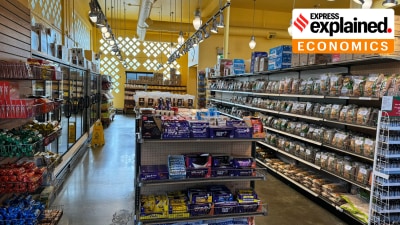Status quo likely: HDFC Bank
In a recent note,HDFC Bank chief economist Abheek Barua has said that while the surprisingly robust industrial production data...
In a recent note,HDFC Bank chief economist Abheek Barua has said that while the surprisingly robust industrial production data for August (10.4 per cent) has raised the probability of a rate hike in the October 27th policy,he believes that the RBI will maintain the status quo.
The case he makes is as follows. While high inflation is an area of concern,it is largely concentrated in food and other agricultural items where monetary action is not the first line of defence. The fact that food inflation has not spilled over yet to other areas is likely to mean that the RBI could wait a trifle longer before moving,especially since there are equally strong concerns about whether the current economic recovery will sustain, he says.
Barua believes that the RBI will wait until December-January period when inflation actually spikes up before changing policy rates.
According to him,the jury is still out on whether the IIP numbers for June-August represent the beginning of a sustained recovery. Sentiment is up but whether the better-than-expected numbers reflect frantic pre-Diwali inventory re-stocking remains an open question. Indicators known to coincide with the growth cycle such as credit (even if commercial paper and bond issues are factored in) and exports remain sluggish. Further,he says: We are not ruling out the possibility that we have,somewhat unexpectedly,climbed out of the bottom of the industrial cycle. However we believe that the RBI will need more confirmation.
Some indirect monetary tightening,he says,is likely over the next couple of months. One,the RBI could reduce the quantum of OMO (open market operations) purchases from the market. Two,it is unlikely to intervene aggressively in the forex markets as intervention would add to local liquidity. If capital inflows continue to be robust,expect the Indian rupee to appreciate. By bringing down effective import prices,an appreciating currency would help counter inflation.
If the RBI does move in December/January,will it hike rates aggressively? Unlikely,says Barua. The increase in inflation in December-January,he says,will be a spike driven by a low base and a rise in agricultural product prices. Inflation will moderate in the second half of 2010 as the base effect works favourably. And if the winter (rabi) crop is better,that will also help. According to him,anecdotal evidence suggests that the bulk of the manufacturing sector is working below full capacity. A significant demand driven price spiral is unlikely to build up before 2011. Thus while the RBI needs to be vigilant,it is unlikely to hike aggressively, he says.
Photos


- 01
- 02
- 03
- 04
- 05





























